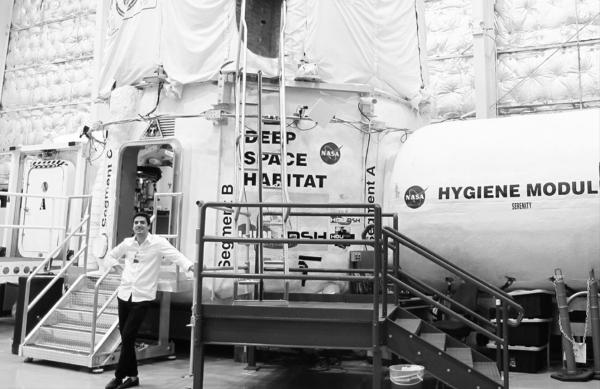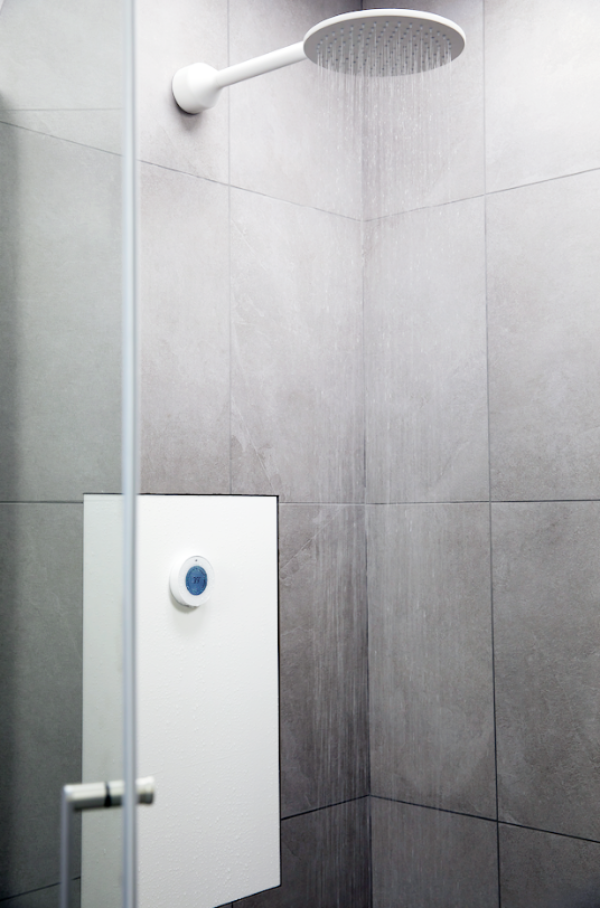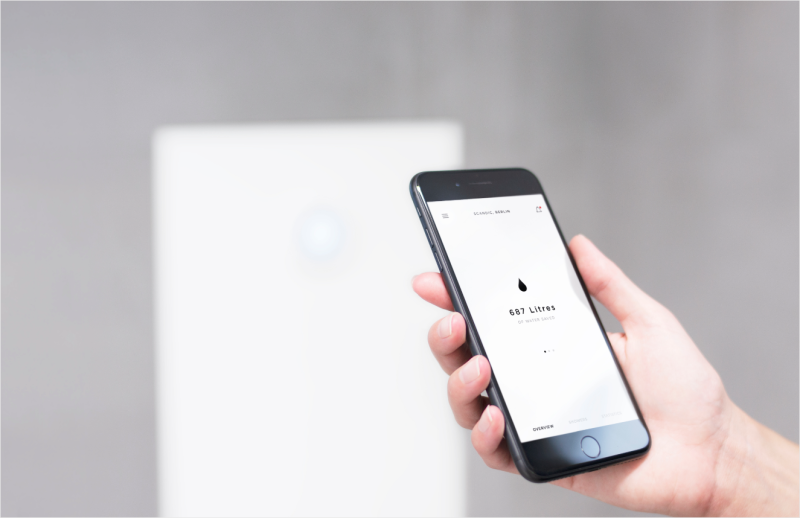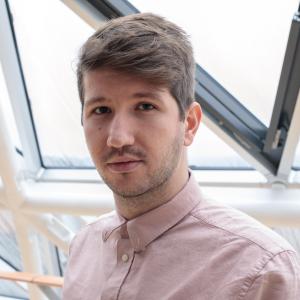Some people get their ideas in the shower. Mehrdad Mahdjoubi has a great idea for a shower. Here’s how he set up a company to develop his Swedish space shower.
A journey to the Red Planet has become one of humanity’s obsessions. The fiery dot has intrigued us ever since it was spotted in the sky millennia ago. One of the romantics who took up the obsession was a young Swedish industrial design student, Mehrdad Mahdjoubi. It lead him to develop a product that could be very important for the future of Earth, too.
While studying in one of Scandinavia’s oldest universities in Lund, Mehrdad landed an internship with NASA’s Mars Mission project. “Who doesn’t dream about space travel?” says Mehrdad. “However, most don’t think about the logistics behind it and what life in space would look like.”

Every drop counts
In Houston, he worked on developing technologies to make life in space more sustainable. “In space, every drop of water counts,” he says. Space shuttles cannot carry all the water the crew needs, which is why NASA developed a filter to recycle more than 90% percent of the water astronauts use. “American astronauts even recycle urine, turning it into drinkable water,” Mehrdad adds.
Water is a precious resource—and not only in space. Just 3% of the Earth’s water is freshwater. “We are so wasteful. In many countries, toilet water is the same quality as the drinking water,” he says.
“I started wondering, why not use the same technology in our everyday life? Why use it only for a dozen crewmembers, when it can benefit billions of people?”

Houston, I’m ready for take-off
After the NASA internship, Mehrdad moved back to his hometown, Malmö, in southern Sweden, keen on developing his own space-style filter for use on Earth, where he believed it could have a bigger impact.
Like the space systems, the shower he created uses 90% less water than a conventional shower, because the water is instantly purified and recirculated to the showerhead. A typical shower uses 100 litres of water during a 10-minute shower. “Our shower system usually needs from 5-10 litres of water,” says Mehrdad, “which is continuously recirculated at an ideal temperature.”
The system also saves up to 80% of the energy usually needed to heat a shower, and it allows you to track your savings and consumption with an app.
Since developing the shower, Mehrdad started his own company, Orbital Systems, which the European Investment Bank recently supported with a € 15 million loan to scale up production and R&D.
The EIB’s loan officer based in Stockholm, Jérémie Hoffsaes, saw Mehrdad present his company’s ideas at a tech fair in Sweden’s capital a few years back. “I immediately called my colleagues at the Bank to look into it,” Hoffsaes says.
Francisco Alves da Silva, the EIB loan officer working on the project, was impressed right from the start. “The company’s mission is truly inspiring and very much in line with the Bank’s environmental goals,” he says.
The project, supported with a guarantee under the European Fund for Strategic Investments, will double the number of jobs in the company, which currently employs 70 people.
Swedish space shower helps reinvent a city
The company is based in Malmö, which has struggled in recent years to overcome its reputation as a gritty place. However, in the years since the construction of the Øresund Bridge between Sweden and Denmark, Malmö has become home to many biotech and IT companies.
In 2016 and 2017, Malmö attracted more start-up investment than any other location in Scandinavia besides the capital cities. “The city’s tech scene encouraged me to set up Orbital’s headquarters there,” Mehrdad says.
A new mission for the Swedish space shower
Hundreds of Orbital showers have already been installed around Europe and the US. Most buyers are commercial clients, due to the €6,000 cost of the shower. “We hope to bring costs down to make it affordable enough to sell in water-deprived developing countries,” Mehrdad says. “Our vision is to change the way people think about and use water.”

The company’s next step is to apply this water-saving technology to taps, toilets and appliances such as the washing machine.
Many people, including Elon Musk and Jeff Bezos, argue that colonising Mars might be humankind’s most important project. Others believe scientists and politicians should focus on saving Earth. Orbital’s water-saving technology proves it’s possible to do both.
